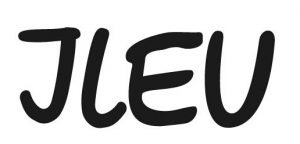Workshop on European Identity and Awareness
The workshop concept can be used to clarify the following question: Which projects, activities and methods in adult education can be used in order to help fostering and/or developing European awareness or European identity. We understand European awareness and identity as a social construct, which is produced societally but also individually. We assume that European awareness is open to different identities, in which different cultural identification patterns or immaterial cultural heritage play a central role, but also a value orientation for a peaceful, democratic and solidary Europe is given.
Methods that help developing key competences such as critical thinking or self-reflection will be analyzed.
Within the framework of the workshop, the participants first have the opportunity to reflect on their own European identity or European awareness. The following key questions will be dealt with in small groups:
– How can European awareness be developed through activities? What is important?
– Which methods can help?
– Do you know of any projects that contribute to European identity? What is their core idea?
These results will be reflected in a final round.
The term European consciousness or European identities will be operationalized in four aspects: (1) fundamental values, (2) key competences, (3) identification patterns and symbols of cultural heritage and (4) emotions and attributions of meaning:
(1) Fundamental Values
mindfulness, agility, altruism, recognition, enthusiasm, discipline, empathy, efficiency, effectiveness, diligence, flexibility, freedom, justice, money, humor, idealism, integration, sustainability, charity, respect, democracy, self-responsibility, solidarity, tolerance, dignity, Prosperity, education
(2) Key Competences
Ability to communicate and discuss, critical thinking, self-reflection, understanding technology, assessing and judging, cooperation and teamwork, decision-making, creativity, imagination, ability to learn, assertiveness, organizational skills, empowerment, learning competence, foreign language competence, social skills, social competence, entrepreneurial competence
(3) Identification Patterns and Symbols of Cultural Heritage
Home, Symbols for Europe, Eiffel Tower, Danube, Atomium, European Parliament, Euro, verbal handed down Traditions, such as stories or proverbs, dialects and special expressions, music, dances, plays, social usages, rituals and festivals, specific social practices, handicrafts technologies, Monuments, and others cultural heritage
(4) Emotion and Attributions of Meaning
Pride, familiarity, joy, motivation, feeling strong / empowerment, fear, anxiety, confusion, nostalgia, reverence, luckiness, admiration, adoration, amusement, grief



